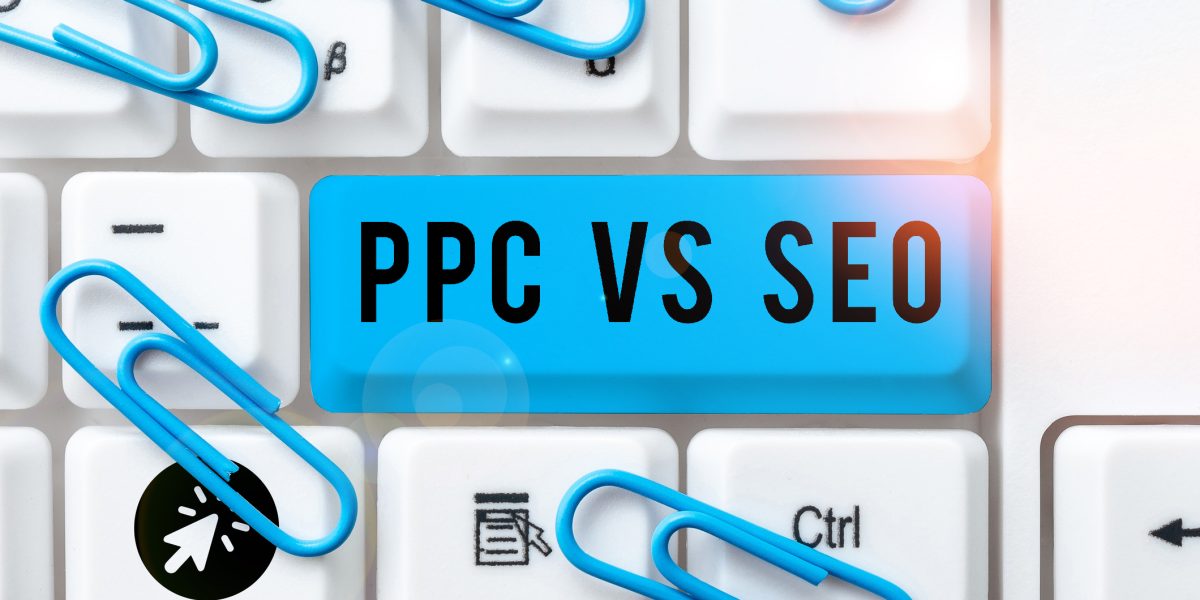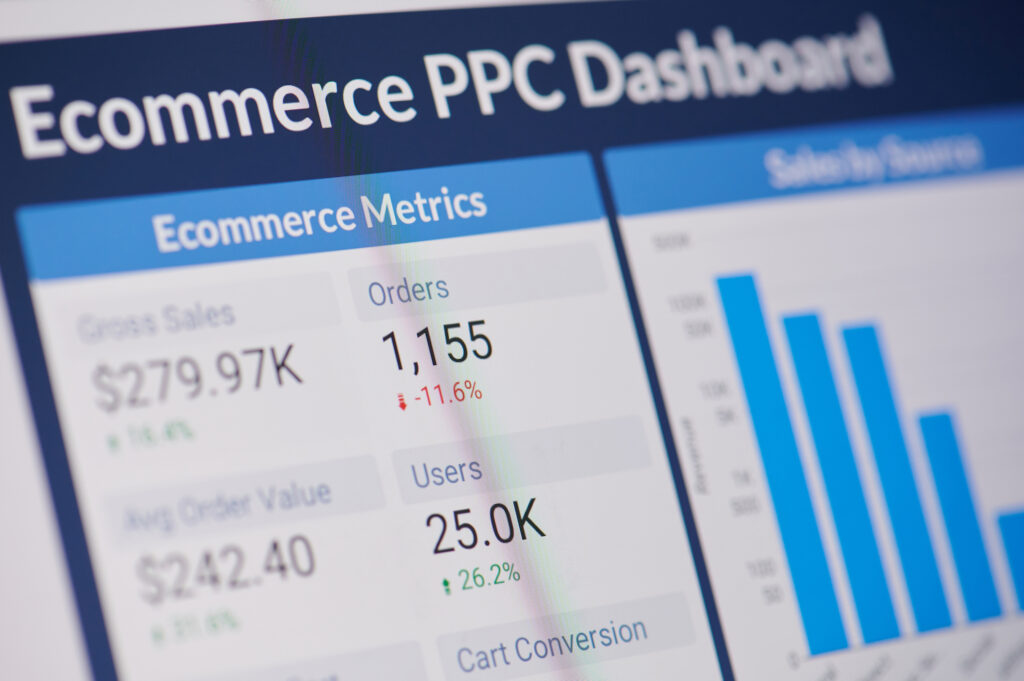SEO vs. PPC: Which Should You Implement?
Both SEO (Search Engine Optimization) and PPC (Pay-Per-Click) advertising are important components of a comprehensive digital marketing strategy. However, the choice between the two will depend on various factors such as your business goals, budget, timeline, target audience, and competition.
Here are some points to consider when deciding which one to implement:
Budget
SEO typically has a lower cost than PPC since it involves optimizing your website for search engines and creating content. In contrast, PPC requires you to pay for each click on your ads. Therefore, if you have a limited budget, SEO may be a better option.
Timeline
SEO is a long-term strategy that takes time to see results. It may take several months or even a year to rank on the first page of search engine results. On the other hand, PPC can provide immediate results and help you get traffic to your website right away.
Target Audience
Both SEO and PPC can be effective in reaching your target audience. However, if your target audience is more likely to click on ads, then PPC may be the better option. Conversely, if they prefer organic search results, then SEO may be a better fit.
Competition
If you are in a highly competitive industry, it may be difficult to rank on the first page of search engine results through SEO alone. In this case, PPC may help you get visibility and drive traffic to your website while you work on your SEO strategy.
In summary, the choice between SEO and PPC will depend on your business goals, budget, timeline, target audience, and competition. In many cases, a combination of both can be a highly effective digital marketing strategy.
SEO vs. PPC Ads: What Are They and How Do They Work?
SEO (Search Engine Optimization) and PPC (Pay-Per-Click) ads are two different approaches to improving the visibility and traffic to your website through search engines like Google, Bing, and Yahoo.
SEO involves optimizing your website to improve its ranking on search engine results pages (SERPs) for specific keywords. The goal of SEO is to increase organic traffic to your website by improving the relevance and authority of your website in the eyes of search engines.
This is typically done through a combination of on-page optimization (e.g., optimizing website structure, content, and meta tags) and off-page optimization (e.g., building high-quality backlinks).
PPC, on the other hand, involves paying to display ads on search engine results pages for specific keywords. Advertisers bid on keywords related to their products or services, and their ads are displayed when users search for those keywords. Advertisers only pay when a user clicks on their ad, hence the name “pay-per-click.” The goal of PPC is to drive targeted traffic to your website through paid search ads.
Both SEO and PPC can be effective in driving traffic and generating leads for your business. However, they differ in terms of cost, timeline, and approach.
SEO is a long-term strategy that requires ongoing effort and optimization to achieve and maintain high rankings. It can take several months to see results, but once your website begins to rank for relevant keywords, the traffic is typically more sustainable and less expensive compared to PPC.
PPC, on the other hand, can provide immediate results and is a great option for businesses looking to quickly generate leads or sales. However, it can be costly, and the traffic generated through PPC is often less sustainable compared to SEO.
Overall, both SEO and PPC are important components of a comprehensive digital marketing strategy. The decision to use one or both will depend on your business goals, budget, and target audience.
What is SEO?
SEO stands for Search Engine Optimization, which is the process of optimizing your website and its content to improve its visibility and ranking in search engine results pages (SERPs).
Search engines like Google, Bing, and Yahoo use complex algorithms to determine which websites are the most relevant and authoritative for specific search queries. SEO aims to improve your website’s relevance and authority in the eyes of search engines, so that it appears higher in the search results for relevant keywords.
SEO involves a wide range of techniques, including:
- Keyword research: Identifying the keywords and phrases that people use to search for products or services related to your business.
- On-page optimization: Optimizing your website’s content, structure, and meta tags to make it more relevant and easier for search engines to crawl.
- Off-page optimization: Building high-quality backlinks to your website from other authoritative websites in your industry.
- Content marketing: Creating high-quality, engaging content that is optimized for search engines and provides value to your audience.
- Technical optimization: Ensuring that your website is technically sound, with fast page load times, responsive design, and proper coding practices.
By improving your website’s SEO, you can attract more organic traffic to your website and generate more leads and sales for your business. However, SEO is a complex and ongoing process that requires ongoing effort and optimization to maintain high rankings in search results.
What is PPC?
PPC stands for Pay-Per-Click, which is a type of online advertising model where advertisers pay each time someone clicks on their ad. PPC ads are typically displayed on search engine results pages (SERPs) or on websites and social media platforms that participate in ad networks.
With PPC advertising, advertisers create ads that are displayed when someone searches for a specific keyword or visits a website that displays ads related to that keyword. Advertisers bid on keywords, with higher bids resulting in better ad placement on SERPs or other websites. When someone clicks on an ad, the advertiser is charged a fee based on their bid amount.
PPC can be an effective way to drive targeted traffic to your website and generate leads and sales for your business. It can be a highly targeted form of advertising, allowing you to reach specific demographics or audiences based on their search behavior or interests.
However, PPC can be expensive, and the cost per click can vary widely depending on the competition for the keyword or audience you are targeting. Additionally, PPC requires ongoing monitoring and optimization to ensure that your ads are effective and cost-efficient.
Overall, PPC is a powerful digital marketing tool that can be used in conjunction with other marketing strategies to drive traffic and generate leads and sales for your business.
The Pros and Cons of SEO vs PPC Ads
Both SEO and PPC ads have their own advantages and disadvantages. Here are some of the pros and cons of each:
Pros of SEO:
Long-term benefits
SEO can provide long-term benefits, with high rankings in search results providing ongoing traffic to your website.
Cost-effective
Once your website is optimized for SEO, the ongoing costs are relatively low, making it a cost-effective option compared to PPC.
Credibility
High organic rankings can provide credibility and trust for your brand, as users are more likely to click on organic results than paid ads.
Cons of SEO:
Time-consuming
SEO can take time to produce results, with ongoing effort and optimization required to maintain high rankings.
Unpredictable
Search engine algorithms can change frequently, making it difficult to predict or control your rankings.
Requires expertise
SEO is a complex and technical process that requires specialized expertise to execute effectively.
Pros of PPC:
Immediate results
PPC can provide immediate results, with ads displayed as soon as your campaign is launched.
Targeted
PPC allows you to target specific demographics or audiences based on their search behavior or interests.
Control over ad spend: With PPC, you have control over your ad spend, allowing you to set a budget and adjust it as needed.
Cons of PPC:
Costly
PPC can be expensive, with costs varying widely based on the competition for your targeted keywords or audience.
Limited sustainability
PPC traffic is typically less sustainable than organic traffic, as ads are only displayed as long as you continue to pay for them.
Requires ongoing management
PPC campaigns require ongoing monitoring and optimization to ensure that they are effective and cost-efficient.
In summary, both SEO and PPC have their own advantages and disadvantages, and the decision to use one or both will depend on your business goals, budget, and target audience. A comprehensive digital marketing strategy may incorporate both SEO and PPC to achieve the best results.
When Should You Use SEO vs. PPC Ads?
The decision to use SEO or PPC ads depends on your business goals, budget, and target audience. Here are some factors to consider when deciding whether to use SEO or PPC ads:
Use SEO when:
- You want long-term benefits: SEO can provide long-term benefits, with high rankings in search results providing ongoing traffic to your website.
- You have a limited budget: SEO is generally less expensive than PPC, making it a good option if you have a limited budget.
- You want to build credibility: High organic rankings can provide credibility and trust for your brand, as users are more likely to click on organic results than paid ads.
- You have a clear understanding of your target audience and their search behavior: SEO requires a deep understanding of your target audience and their search behavior, so you should use SEO when you have a clear understanding of these factors.
Use PPC when:
- You want immediate results: PPC can provide immediate results, with ads displayed as soon as your campaign is launched.
- You want to target specific demographics or audiences: PPC allows you to target specific demographics or audiences based on their search behavior or interests.
- You have a flexible budget: With PPC, you have control over your ad spend, allowing you to set a budget and adjust it as needed.
- You want to test the effectiveness of different keywords and ad copy: PPC provides a platform for testing the effectiveness of different keywords and ad copy, allowing you to optimize your campaigns for maximum ROI.
In summary, the decision to use SEO or PPC ads should be based on your business goals, budget, and target audience. Both SEO and PPC can be effective digital marketing strategies, and a comprehensive digital marketing strategy may incorporate both to achieve the best results.
Making SEO and PPC Ads Work Together
SEO and PPC can work together to enhance the effectiveness of your digital marketing campaigns. Here are some ways to integrate SEO and PPC to achieve better results:
Keyword research
Use keyword research to identify high-performing keywords for both your SEO and PPC campaigns. Use this research to optimize your website content and create targeted ad campaigns.
Landing pages
Create landing pages that are optimized for both SEO and PPC. Use the same messaging and branding for both to provide a consistent user experience.
Targeted campaigns
Use PPC campaigns to target specific keywords that are difficult to rank for organically. Use this data to inform your SEO strategy and focus on optimizing for these high-value keywords.
Testing and optimization
Use PPC campaigns to test different ad copy, landing pages, and keywords. Use this data to optimize your SEO strategy and improve your organic search rankings.
Remarketing
Use remarketing campaigns to target users who have visited your website but did not convert. Use this data to create targeted SEO campaigns that address the specific needs of these users.
Share data: Share data between your SEO and PPC campaigns to gain a better understanding of your target audience and their behavior. Use this data to optimize your campaigns for maximum ROI.
Conclusion
In summary, integrating SEO and PPC can enhance the effectiveness of your digital marketing campaigns. By using data to inform your strategy and optimizing your campaigns for maximum ROI, you can create a comprehensive digital marketing strategy that drives traffic and generates leads and sales for your business.









